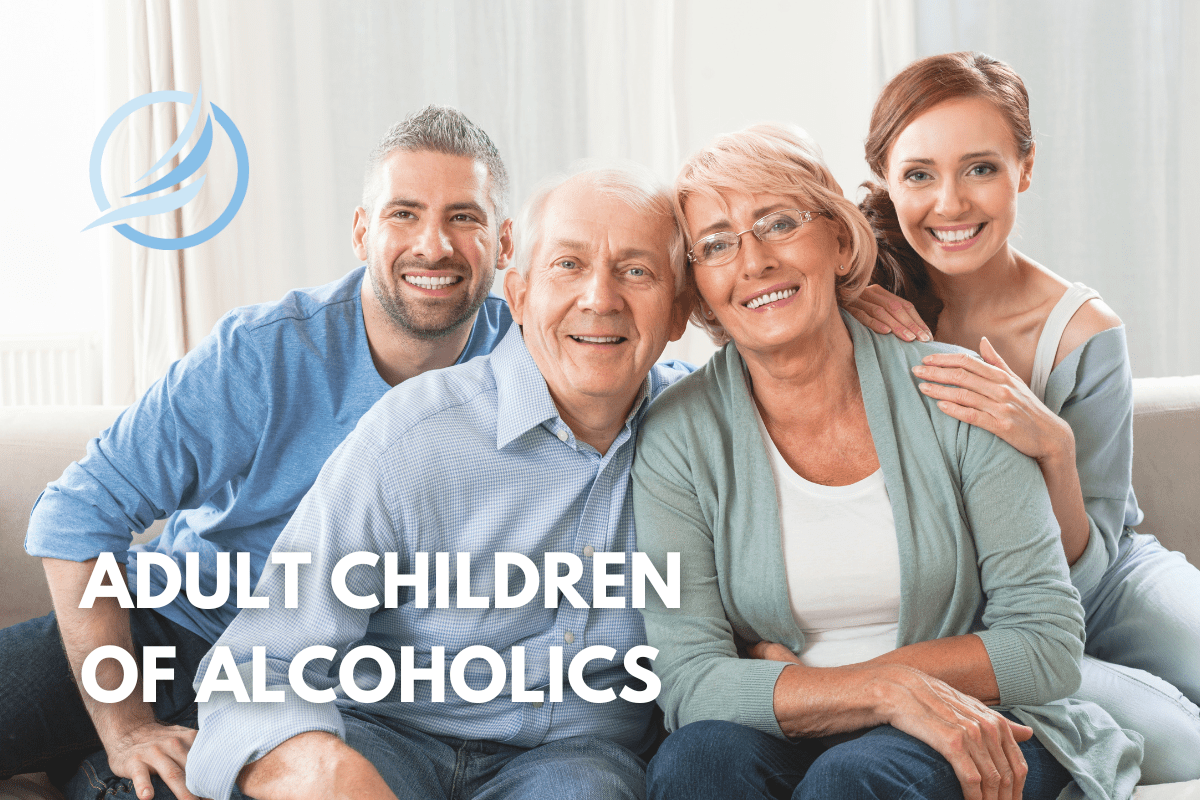Alcoholism’s impact extends beyond the individual, deeply affecting friends and family, especially children. Let’s explore the world of Adult Children of Alcoholics (ACoA), a group that often carries the weight of their childhood experiences well into their adult lives. We’re shedding light on their challenges and the path to healing.
Understanding ACoA: The Basics
Adult Children of Alcoholics, or ACoAs, are individuals who have grown up in a household where one or both parents struggled with alcoholism. This environment can significantly impact their emotional and psychological development, often carrying these effects into adulthood. Common challenges faced by ACoAs include:
- Impulsive behaviors, often as a response to past unpredictability.
- A tendency towards solitude as a way of coping with past familial instability.
- Heightened sensitivity to criticism stemming from a need for stability and approval.
- Committing excessively to work and personal responsibilities, possibly to gain control or approval.
- Past family dynamics often influence challenges in forming and maintaining romantic relationships.
- A heightened reaction to situations beyond their control, reflecting past experiences of unpredictability.
- A self-perception of victimhood can be a result of unresolved childhood trauma.
- Difficulty in owning their decisions, possibly due to a lack of positive role models during childhood.
- Critical attitudes towards themselves and others, often as a defense mechanism.
- A strong desire for approval from others is rooted in childhood experiences.
- Dishonesty in challenging situations, reflecting a fear of judgment or criticism.
- An increased risk of substance abuse disorders as a way of coping with past trauma.
Recognizing and understanding these traits is a crucial step in the healing journey. It’s important to remember that these behaviors are often adaptive responses to past experiences, and transformation and healing are possible with the right support and treatment.
The Impact on Life and Relationships
Growing up in a family where one or both parents struggle with alcoholism can significantly influence an individual’s approach to relationships and life in adulthood. Key impacts often observed include:
- Challenges in Interpersonal Relationships: Many ACoAs find establishing and maintaining healthy relationships, especially romantic ones, difficult. This difficulty often stems from the instability and lack of reliable adult figures experienced during childhood, leading to challenges in forming trusting bonds.
- Fear of Abandonment and Replicating Dysfunctional Dynamics: The unpredictability of an alcoholic household may instill fear of abandonment in ACoAs or lead them to unconsciously replicate the dysfunctional relationship dynamics of their childhood in their adult life.
- Communication and Trust Issues: Growing up in such environments can result in deep-seated trust issues and poor communication skills, making building and sustaining fulfilling relationships challenging.
- Independence vs. Dependence: ACoAs might swing between extremes of being overly independent, avoiding close relationships, or becoming overly dependent, seeking constant reassurance and validation.
- Physical and Emotional Challenges: In some cases, ACoAs may face a higher likelihood of being involved in physically aggressive relationships or experiencing domestic violence, reflecting the complex interplay of childhood experiences and adult behaviors.
Common Coping Mechanisms and Their Effects
Adult Children of Alcoholics often develop coping mechanisms as a response to the stress and challenges they faced during their upbringing. Common coping mechanisms include:
- Perfectionism: To avoid criticism, ACoAs may strive for perfection in all they do. This can lead to significant stress and an intense fear of failure.
- Denial: Some ACoAs may find it challenging to acknowledge the impact of their childhood experiences, leading to a denial of their influence. Denial can be a barrier to seeking recovery and addressing harmful behaviors.
- Approval-Seeking: A typical response is prioritizing others’ needs and opinions over their own to avoid conflict or gain approval. Approval-seeking can lead to neglecting personal needs and taking on more responsibilities than one can manage.
- Extreme Independence: Conversely, some ACoAs might become overly self-reliant, avoiding close relationships and support even when needed. This independence can lead to isolation and difficulty in seeking help.
- Controlling Behavior: To avoid the chaos of their childhood, ACoAs may try to control their environments and people around them. While this can provide a sense of security, it may also lead to stress and conflict in relationships.
- Avoidance: Avoiding confrontation or complex emotions is another coping strategy. Avoidance can hinder resolutions and personal growth, often manifesting as procrastination or disengagement from responsibilities.
- Emotional Suppression: Struggling to express and process emotions, many ACoAs keep their feelings bottled up. Emotional suppression can lead to difficulties in understanding and expressing emotions in various aspects of life.
Finding Help for Adult Children of Alcoholics
Embarking on the journey to recovery as an Adult Child of Alcoholics can be daunting, but it’s important to remember you’re not alone. The Freedom Center is committed to offering support and resources at every step of the way.
Family Therapy
Family therapy plays an integral role in the healing journey of Adult Children of Alcoholics. At The Freedom Center, we value the transformative power of family therapy in addressing the complex dynamics and trauma that ACoAs have experienced. Family therapy can offer several benefits:
- Improving Communication: It helps ACoAs and their family members learn to express feelings and thoughts more effectively, fostering a healthier communication environment.
- Addressing Root Causes: By examining family dynamics, therapy can reveal underlying issues contributing to an individual’s challenges, allowing for more targeted and effective treatment.
- Awareness and Support for Mental Health: Therapy sessions can increase awareness of mental health issues within the family and equip members with strategies to support each other.
- Constructive Conflict Resolution: Participants can learn to resolve conflicts in ways that protect and promote mental health, moving away from destructive patterns of the past.
Given the significant impact of family dynamics on ACoAs, family therapy is often an essential step in recovery. It addresses the individual’s issues and the broader familial patterns that may have contributed to these challenges.
Non-Intensive Outpatient Programs
For Adult Children of Alcoholics, balancing the demands of daily life with the need for recovery can be challenging. Non-Intensive Outpatient (NIOP) programs are a flexible and effective treatment option. NIOP programs support ACoAs in several ways:
- Flexible Treatment Schedules: NIOP programs provide counseling and treatment that fits into the daily lives of individuals, allowing them to continue with their work and family responsibilities while receiving the care they need.
- Tailored Therapy Approaches: These programs offer a variety of therapeutic approaches, including individual therapy and medication management, tailored to the unique needs of each ACoA.
- Support for Mild to Moderate Symptoms: NIOP is particularly beneficial for those who have already undergone more intensive treatment or are experiencing mild to moderate symptoms related to their upbringing.
- Strong Support Networks: They are ideal for individuals with a solid support system, such as supportive friends, family, or a regular support group.
NIOP represents the least intensive level of outpatient care, but more is needed to equate to lower quality. It’s about providing care that is as effective as it is adaptable, ensuring that each person’s treatment journey respects and accommodates their life circumstances.
Wrapping Up
Remember, healing from the challenges of being an ACoA is possible and achievable with the right support and resources. The Freedom Center is here to help guide you on your path to understanding, managing, and overcoming the unique challenges you face. Take the first step today towards a brighter and healthier future.

































